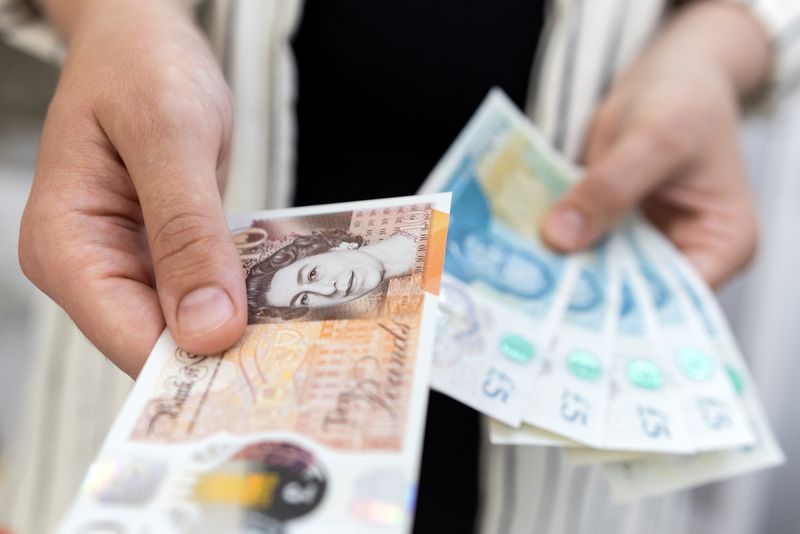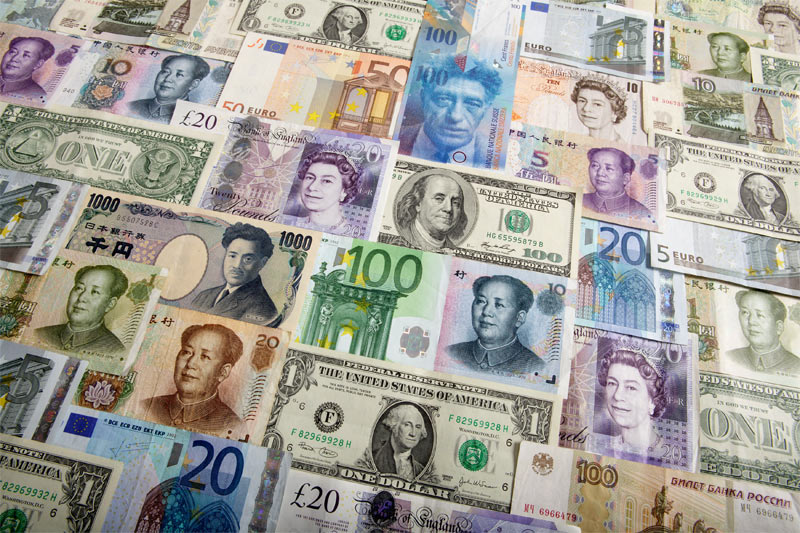LONDON (Reuters) – Sterling has faced trials and tribulations in recent decades but remains a widely used currency, and this year it has held up better against the dollar than its peers.
Here are some facts about the British currency:
1/ PERFORMANCE THIS YEAR
The pound is trading around $1.27, up 23% from its record low in 2022. The rate has fallen fractionally against the dollar this year, but that is an outperformance against other developed market currencies.
The recovery was underpinned by better-than-feared economic performance, expectations that the Bank of England will be cautious in cutting interest rates and hopes that a major victory for the opposition Labor party in the July 4 election will lead to greater political and economic problems. stability.
Sterling is also close to a two-year peak against the euro at around 84 pence.
2/ ROLE IN THE FX MARKETS
The pound sterling is the fourth most actively traded currency in the world, after the dollar, the euro and the yen. That’s significant in a global currency market with a turnover of more than $7.5 trillion a day and reflects London’s role as a major financial center.
It was bought or sold in about 13% of global currency transactions in April 2022, up from 15% in 1989, the latest three-year survey from the Bank for International Settlements (BIS) showed.
The UK is also the world’s leading foreign exchange trading location with a 38% share of global turnover, the BIS estimates.
3/ PAYMENTS AND RESERVES
It’s not just the financial markets that use sterling for trading.
The pound ranks third when currencies are ranked by their share of global payments by value, data from Swift shows.
It is responsible for 6.84% of global payments, compared to roughly 47% for the dollar and almost 23% for the euro. This is still higher than the Japanese yen and . The share of the British pound has remained largely stable over the past decade.
According to the International Monetary Fund, the pound also accounts for around 5% of global currency reserves. That share has also remained largely stable over the past twenty years, underscoring the importance of the pound to money managers.
4/ HISTORICAL ROLE
The British pound’s role in foreign exchange markets is partly due to a legacy of its dominance in world trade in the 19th and early 20th centuries, which positioned Britain as a major banker to the world.
After the First World War, the currency lost its crown to the dollar, but it nevertheless remains important, even though the price weakened due to the British trade deficit and higher average inflation than in the United States.

The reputation of strong property rights and limited government means foreign investors feel comfortable holding sterling, economists say.
And unlike the currencies of emerging economic giants such as India, South Korea and China, sterling is traded freely 24 hours a day, five days a week. (This story has been refiled to correct the hyperlink in paragraph 1)


